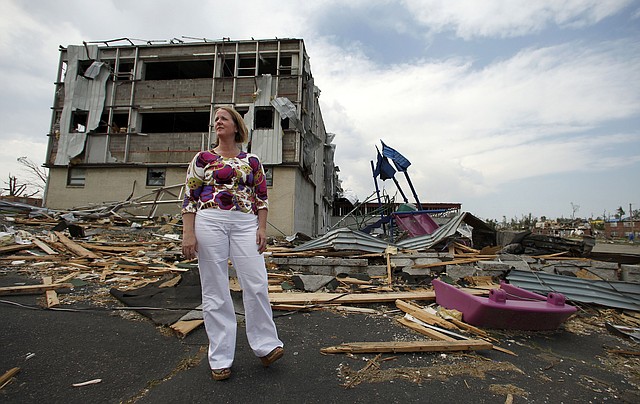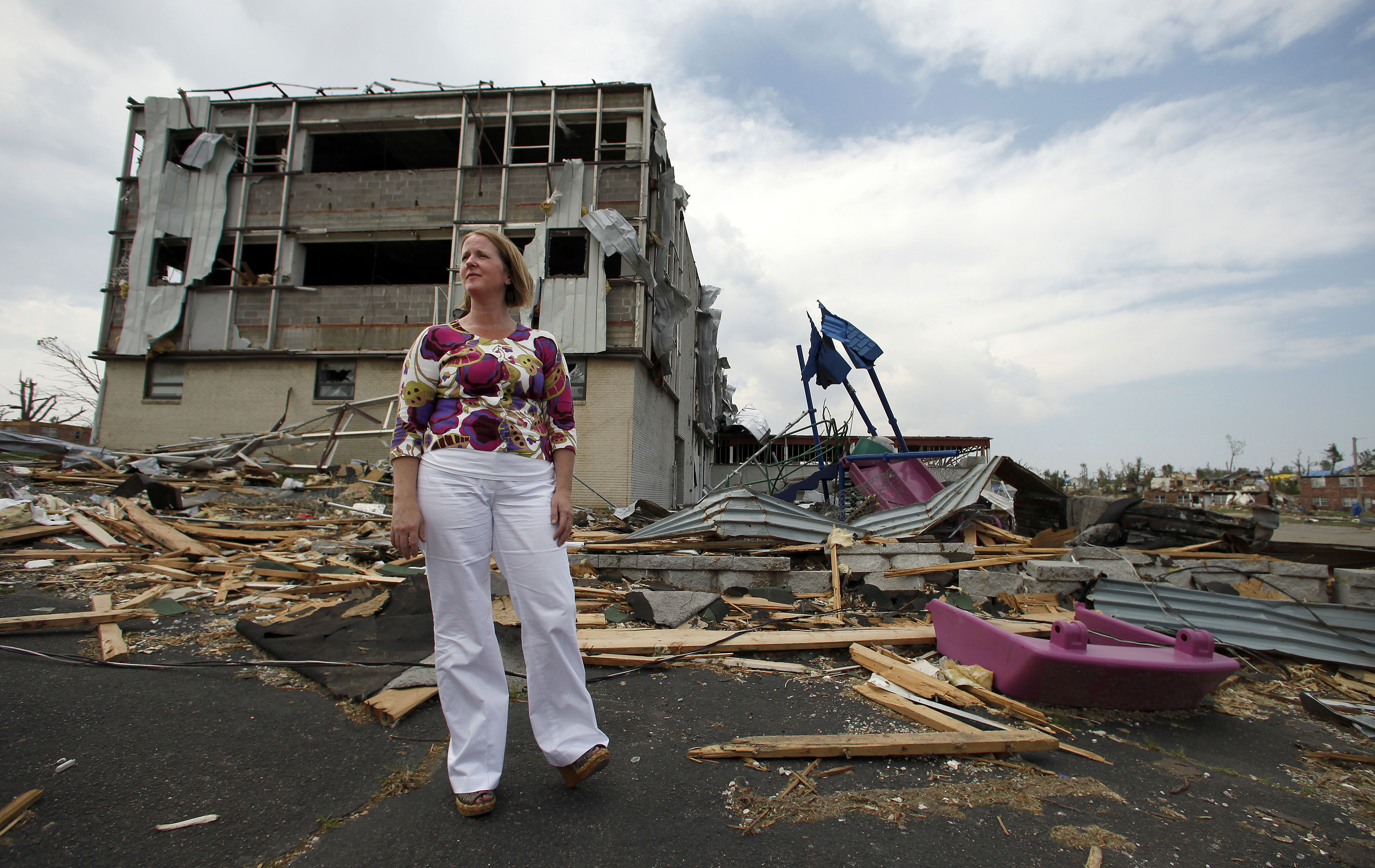Autism center aims to rebuild after Joplin tornado
Monday, June 20, 2011
JOPLIN, Mo. - Families whose children get some of the best autism services available are scrambling for help after a prominent treatment facility was destroyed in the tornado that ravaged the city of Joplin last month.
The Ozark Center for Autism, which has a national reputation and draws families to the area, offers hands-on, intensive therapy at an early age. The program had recently added a diagnostic team and was slated to expand with services for adults, including vocational training. But the May 22 tornado that pummeled the city, killing more than 150 people and injuring hundreds, demolished the center.
It has relocated to an indoor skate park on the outskirts of town until it can move to another temporary facility closer to its previous location. But fewer families can easily reach the current location, and while Ozark Center staff members have increased their number of home visits, they are concerned that some children could see their progress halted.
"The children will lose some of the skills they've gained if they're not seen immediately," said Paula Baker, chief clinical officer for Freeman Health System, which owns and operates the autism center.
The destroyed Ozark Center included not just the autism school but residential and outpatient psychiatric care and substance abuse treatment units, collectively serving more than 13,000 patients in a four-state region. Baker said that Freeman plans to completely rebuild, and is especially committed to its autism program, which serves a dozen preschool students, four in a new K-12 program and 40 other families receiving in-home care
"Obviously, it's been devastating," Baker said. "But we are committed to rebuilding the program. The tornado will never blow away our commitment to helping these children."
As news of the damage to the Ozark Center spread on Facebook and through word of mouth, pledges of support and financial donations have poured in from across the country. A Kentucky autism center contacted Baker out of the blue. The Cleveland Clinic, which helped get the Joplin facility started, is raising money to help. So are local and regional agencies in Kansas City, Springfield and elsewhere in Missouri.
"It has been exciting to see the autism community rally behind them," said Dayna Busch, a Springfield activist. "Their quick rally is testimony to their determination that these kiddos not fall through the cracks and fall behind."
The center had opened in October 2007 after a local family that had moved to Ohio for treatment opportunities unavailable in southwest Missouri came to the attention of the Cleveland Clinic Center for Autism. The Cleveland Clinic selected Joplin as the first community in the country where it would replicate its model of using what's known as applied behavioral analysis, or ABA treatment.
"They were very committed to starting something in their community," said Aletta Sinot, director of the Cleveland Clinic program. "They were really forward-thinking, and very community-oriented."
The Ozark Center's footprint remains small, but its reputation extends well beyond Joplin.
Jennifer Kirby, the center's clinical director, had worked at well-regarded autism clinics in the Boston area and London before she joined the Joplin site. The Mississippi native said the Ozark Center for Autism it has a reputation as the "gold standard" in autism treatment.
One family commuted more than 100 miles daily from Springfield so their daughter could attend the preschool. The Associated Press interviewed another family in the tornado's immediate aftermath that had moved from Oregon to Joplin just one month earlier to tap into the community's resources. Their phone number has since been disconnected, and the Ozark Center was not aware of their status.
Jennifer Smith and her husband had their choice of job offers and places to live after he completed a medical fellowship last year in Louisville, Ky. They chose Joplin to get their 5-year-old twin sons the autism services. Smith's sons will attend kindergarten in the fall at a Joplin public school, with autism therapists to ease the transition.
"The first priority was to find a place for them to get help," she said. "It's been the right move."
About 50 families remain on the center's waiting list. In March, the center added a diagnostic team consisting of a pediatrician, clinical psychologist, behavior analyst, speech pathologist and pediatric nurse. That team is now without a home until the center's renovated space becomes available, which Baker expects to happen within the next 90 days.
We have everybody we need sitting around that table," she said. "Families were losing a year of precious time just waiting to get a diagnosis."
Shaine Jordan, 30, said he saw almost immediate improvement in the behavior of his 5-year old daughter, Brielle, who is non-verbal. Years of traditional occupational and speech therapy got her "virtually nowhere."
"We do something for years and got nothing," he said "Within three months, my daughter was able to tell me what she wanted."

